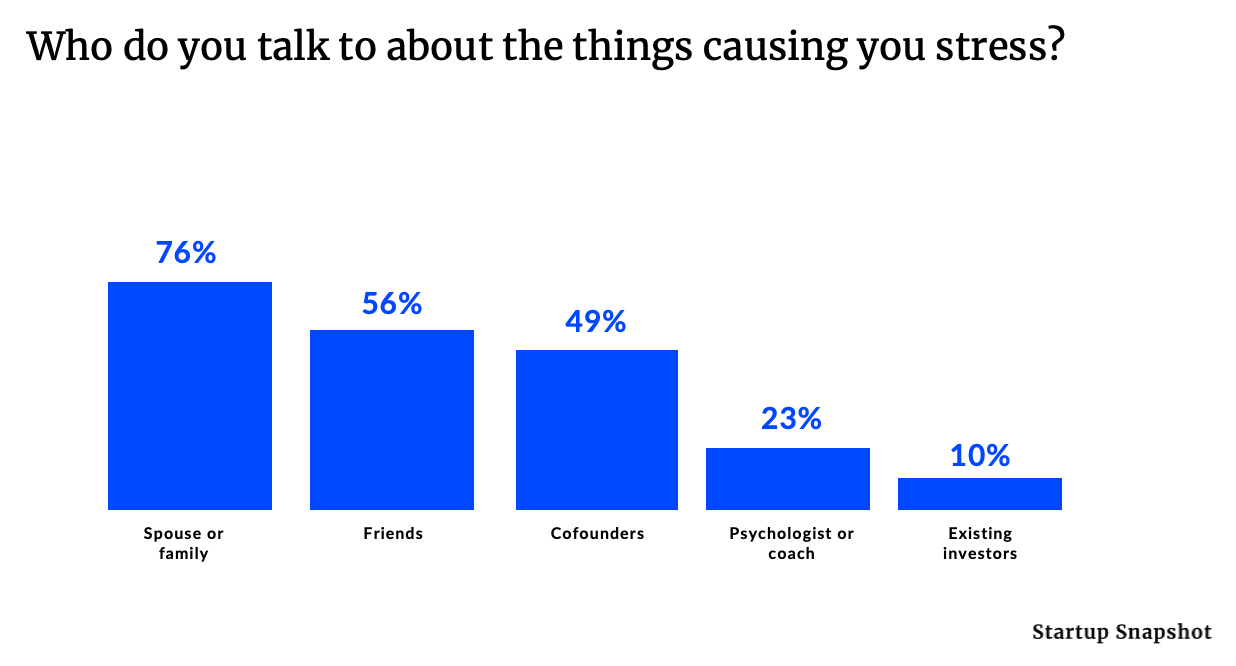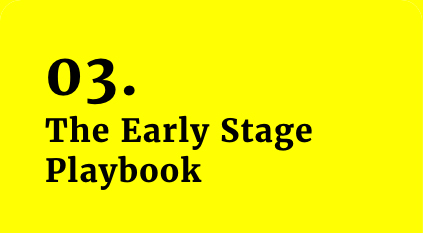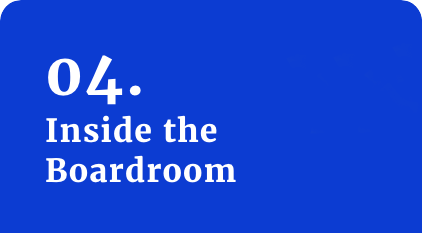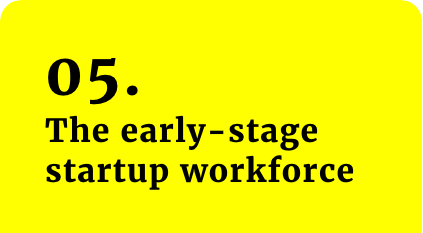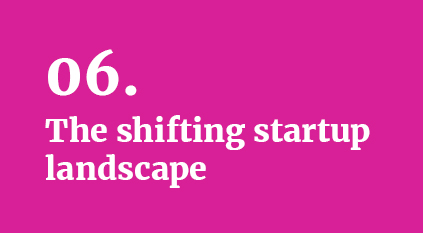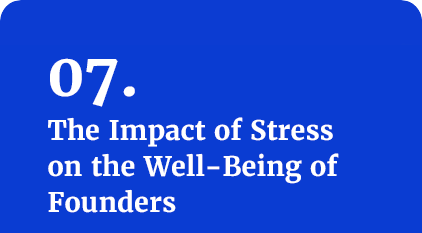Being a founder is a lonely experience. As Marc Randolph, Co-founder of Netflix, put it “You are working on something that no one believes in, that you’ve been told time and time again will never work. It’s you against the world.”
However, despite the inherent loneliness of the entrepreneurial journey, a crucial component of success is having the right support and community to keep you motivated as you move through difficult times. Support can range from a warm shoulder to lean on, to business support or professional psychological guidance.
To better understand who founders turn to and what kind of support they are actually looking for, we collected data from 400+ entrepreneurs from companies of all shapes and sizes (You can check out the full data here). What we found was somewhat predictable and also somewhat shocking, highlighting the need for an emotional connection over pure business support.
1. The number one support founders look for is a warm shoulder to lean on
Founders ranked their spouse and families as the first place they turn to for support. These individuals can provide a listening ear, emotional support and a sense of connection, which can be vital for founders as they navigate the ups and downs of the entrepreneurial journey.
But more than anything, family provides a place where entrepreneurs can be vulnerable. For a minute, they can finally stop selling. Stop selling the vision, the investment and the product. But more than anything, they can stop selling the story that they are superheroes that can achieve impressive goals under the most adverse conditions. They can go back to just being themselves.
However, it is important to recognize that while family and friends can be a valuable source of support, they often times don’t have the subject matter expertise or business knowledge to offer strong advice or solutions to the specific challenges faced by founders. This leaves founders alone to deal with the strategic business decisions that they are facing throughout the entrepreneurial journey, which are especially challenging given today’s economic climate.
2. A good business partner is not necessarily a good emotional partner
Cofounders who are able to work well together, communicate openly, and support each other create a strong foundation for the company. However, it is not uncommon for founders to struggle with openly sharing their stress and challenges with their cofounders.
Only 49% of founders reported that they turn to their cofounder to talk about their stress, a statistic that proves that good business partners are not always good emotional partners. Many are hesitant to burden their cofounder with their problems or feel that they have to maintain a positive image. For others there may be issues of trust or communication that prevent them from openly sharing their challenges.
3. Professional support is lacking as there is still a stigma around seeking help
Therapy is a great resource for founders, helping them identify their core sources of stress and develop efficient tools for dealing with them. Despite the importance of seeking help, many founders do not access professional support, with some concerned about the stigma surrounding mental health and others too busy and overwhelmed to prioritize their own well-being.
The trend is true for both men and women, as the data shows that there is no gender gap, with roughly a quarter of founders of each gender accessing some sort of professional support.
What’s interesting is that despite the strikingly similar rates of accessing support, men believe that there is a much larger stigma around seeking any form of professional support. This raises a key question about why more women don’t seek support, especially if they don’t see a stigma associated with professional help.
4. Venture needs some serious self-reflection as they are ranked in last place
Only 10% of founders reported that they turn to their investors to talk about their challenges, ranking them in last place of the entrepreneurial support network.
What’s more worrying is that the majority of founders are not open with their existing investors, leaving the door open to surprises, a word that no investor wants to hear. 63% of founders reported that they are not very transparent or not transparent at all with their existing investors about their stress and failures.
